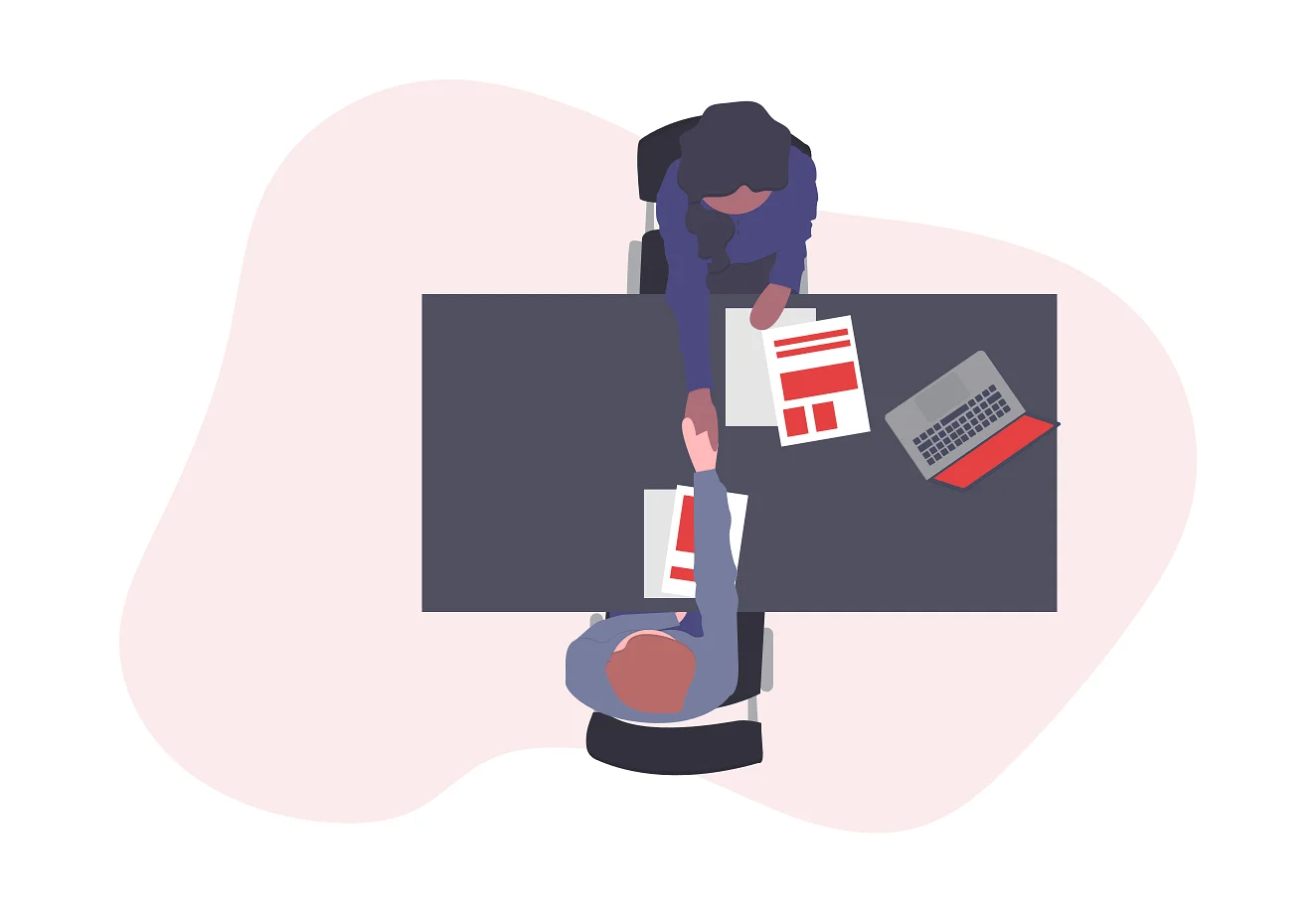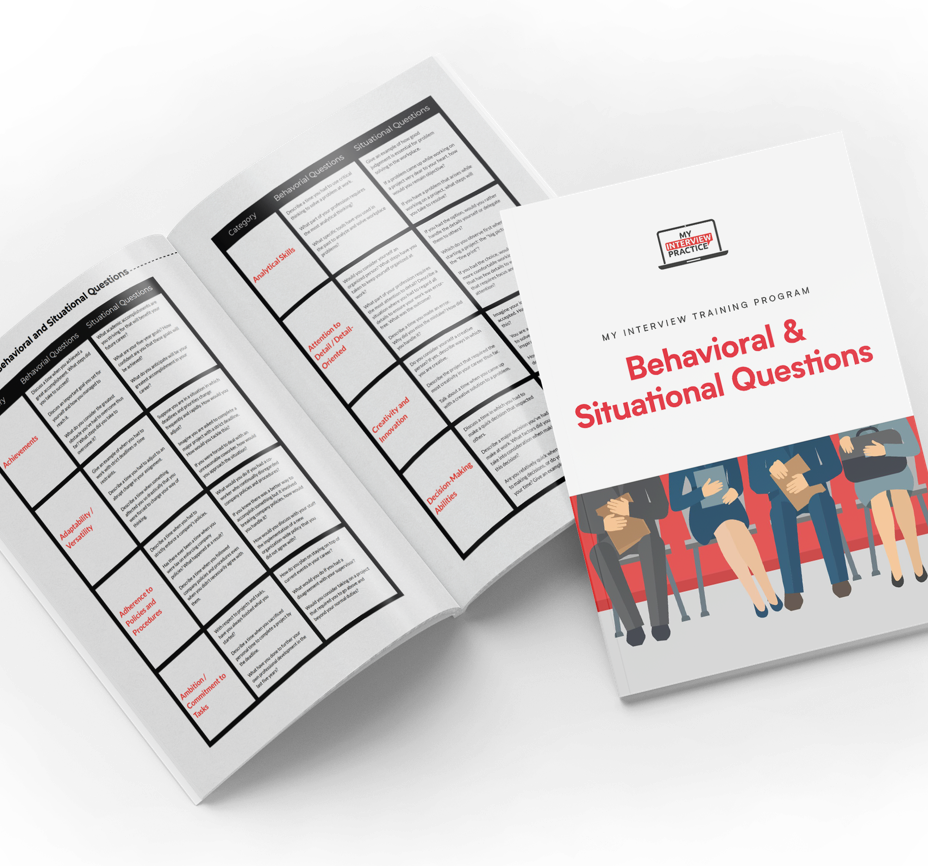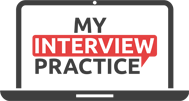First Job Interview Tips: A New Jobseeker’s Guide

Your first job interview can feel like stepping into the unknown, but it’s also your chance to shine. With the right preparation, you can walk in confidently and leave a lasting impression. This guide combines practical strategies and first job interview tips to help you ace your first interview, from researching the role to following up afterward. Let’s dive into how you can stand out and land that job.
Understanding the First Job Interview
According to Undercover Recruiter, 33% of bosses decide whether they’d hire you within the first 90 seconds, so starting strong is crucial. The first interview is pivotal in your career path, aimed at determining your fit for the role and company culture. It’s a prime chance to leave a lasting impression, with your presentation setting the tone for the discussion. The potential employer assesses your communication skills, response quality to interview questions, and alignment of your background with the job posting.
One question each interviewer will almost certainly ask is, “Tell me about yourself.” This is your moment to deliver a concise pitch that highlights your relevant experience, skills, and enthusiasm for the role. Get this right, and you’ve set the tone for a great conversation.
Remember, answering questions allows you to highlight your strengths and show you are the right person for answering questions about the job.
Preparing for Your First Job Interview
Preparation is key to a successful interview process. It boosts your confidence and greatly enhances your chances of impressing the hiring manager. Emphasizing your strengths and providing measurable results in your responses can make a significant impact. Maintaining positive interaction and engaging in small talk can further build rapport with the interviewer.
Preparing well involves three key areas: researching the company and description, practicing common interview questions, and using the STAR method for behavioral questions. These steps will help you feel more prepared when the interview begins.
Researching the Company and Job Description
When preparing for the interview, dig into the company’s mission, values, and recent news. Are they launching a product or growing their business? Knowing their goals shows you’re interested. Check their website, social media, or posts on X for updates.
Studying the position is just as vital. Look for keywords about responsibilities and skills, then write down how your education aligns. For instance, if the role needs “team collaboration,” prepare to describe a group project you led successfully. This prep lets you tailor answers to what the interviewer wants.
Practicing Common Interview Questions
Practicing common questions builds confidence without needing a script. You will encounter common questions like:
- “What are your strengths and weaknesses?”
- “Why do you want this position?”
- “Tell me about a time you faced a challenge.”
For “Tell me about yourself,” aim for a 60- to 90-second answer that describes your education, skills, and why you’re excited about the position. Instead of saying, “I’m a hard worker,” share a story a teacher praised, like how you juggled school and a job while earning a 3.8 GPA. If a question is unclear, ask the employer to explain it.
Using the STAR Method for Behavioral Questions
Behavioral questions, like “Tell me about a time you solved a problem,” test your thinking. The STAR method (Situation, Task, Action, Result) keeps answers clear. Here’s an example:
- Situation: In my retail job, we faced a rush of upset customers during a sale.
- Task: My goal was to calm them and keep the business running smoothly.
- Action: I listened to each customer, offered solutions like discounts, and teamed up with colleagues to speed up checkouts.
- Result: We resolved all complaints, and my manager gave positive feedback.
Making a Great First Impression
First impressions are powerful and can set the interview’s tone. Your presentation, from attire to demeanor, greatly influences the interviewer’s perception. Non-verbal cues like smiling confidently, shaking hands firmly, and maintaining eye contact are essential for a strong first impression.
Being genuine and engaging fosters rapport and positively influences the overall impression you leave. To make a great first impression, dress appropriately, arrive early, and greet the interviewer with confidence.
Dressing Appropriately
Your outfit conveys professionalism and respect for the position. Match it to the company’s culture, whether a suit for a corporate role or smart casual for a creative one. Unsure of what to wear? Check platforms like LinkedIn, Instagram, or X for posts about the workplace or ask the recruiter. This gives you an idea of how to dress for success.
Clean, professional clothes show you’re serious about the position. Avoid loud patterns or casual items like jeans unless the employer expects a relaxed vibe. Thoughtful attire boosts your confidence.
Arriving Early
Arriving 10 to 15 minutes early sets a professional tone. It gives you time to settle, review notes, and shake off nerves. Plan your route ahead, accounting for traffic or transit issues. For virtual interviews, log in early to test your devices and ensure they are working properly.
Arriving on time before the interview starts shows the interviewer you’re reliable and eager for the position. Lateness can signal that you don’t care, so prioritize punctuality.
Greeting with Confidence
One of the best ways to start a positive conversation is through a warm greeting. Walk in with a smile, maintain eye contact, and offer a firm handshake if you’re meeting in person. Say something simple, like, “Hi, I’m [Your Name]. Thanks for having me.” These small actions show you’re comfortable in new situations. Even if nerves creep in, a quick breath keeps you steady. It’s crucial to display authenticity, so let your enthusiasm shine to make the interviewer feel at ease and excited to talk.
Engaging During the Interview
Active engagement is key to shining in the interview process. Your ability to connect with the interviewer keeps the conversation flowing. Positive interactions can outweigh a thin resume, especially for first-timers. Small talk, like discussing a shared idea, builds rapport with the employer.
Interviewers expect someone who fits the position and team, so show you’re interested. To stay engaged, focus on active listening, asking insightful questions, and describing transferable skills with examples.
Active Listening and Clear Communication
Listen carefully to each question to understand its intent. If asked about teamwork, the interviewer is likely checking collaboration skills. Mentally summarize the question before answering. Speak clearly, avoid filler words, and keep responses concise yet detailed.
If a question isn’t clear, say, “Could you explain that a bit more?” It shows you’re thoughtful, not guessing. Pause briefly to gather thoughts if needed; it looks confident.
Asking Insightful Questions
Interviews are two-way conversations. Smart questions show you’re interested and prepared. Try:
- What does success look like in this position after three months?
- Are there skills your team needs that this role could address?
- What challenges does the company expect in the next few years?
These spark discussion about what the interviewer’s expectations. Avoid asking about pay or promotions early, as it seems you prioritize perks over the position.
Highlighting Transferable Skills and Past Experience
You may be starting your career journey and lacking extensive experience, but your skills matter. Organized a club event? That’s project management. Led a tough group project? That’s teamwork. Review the job description and write examples that align.
Instead of saying, “I’m a leader,” tell a story: “As debate club president, I set goals and led our team to regionals successfully.” Quantify when possible: “I streamlined our club’s signup process, doubling membership in a semester.” Don’t forget to bring copies of your resume to highlight these examples.
Following Up After the Interview
Following up after an interview leaves a positive impression. It shows you’re interested in the position and sets you apart. You can send an email with a thank-you note and reflect on the experience. These steps reinforce what the employer can expect from you and offer insights for future interviews.
Sending a Thank-You Note
Within 24 hours, send a short thank-you email to the interviewer or a handwritten note for extra warmth. Reference a specific moment, like a topic you discussed.
Example:
Hi [Interviewer’s Name],
Thank you for discussing the [Job Title] role yesterday. I enjoyed hearing about your team’s focus on innovation. I’m excited to bring my [skill] to your group. Let me know if I can provide more details.
Best,
[Your Name].
Reflecting on the Experience
Reflecting on your interview can help identify what went well and what areas need improvement for future interviews. Taking notes after the interview aids in remembering specific moments and feelings for later reflection.
Analyzing the feedback received during the interview can provide insights vital for improving future performances. Reviewing your interview performance can uncover areas for improvement, ensuring you are better prepared for the next interview.
Staying Calm and Confident
Nerves are normal, but you can manage them. Try deep breathing: inhale for four seconds, hold for four, and exhale for four. Visualize answering smoothly the night before. Focus on what you can control, like preparation and attitude.
Don’t worry — it gets easier!
Although your first interview may seem like the hardest thing you’ve ever done, we’re here to tell you it gets easier! If you follow these first job interview tips and take some time to prepare your answers, you will be well on your way toward acing your first interview.
Frequently Asked Questions
What should I research about the company before my first job interview?
When preparing for an interview, research the company’s history, values, mission, and business operations. This preparation helps you craft responses and create copies of your resume that resonate with employers.
How should I practice common interview questions?
Most common interview questions revolve around your background, career, and job-related experiences, so rehearse your responses for clarity and confidence. Prioritize formulating a concise answer for the “Tell Me About Yourself” question to ensure relevance and fluidity.
What is the STAR method, and how do I use it in an interview?
The STAR method structures behavioral questions, covering Situation, Task, Action, and Result. It helps you describe achievements clearly, showing interviewers what they can expect from you.
How important is it to follow up after an interview?
Following up is crucial to show you’re interested in the position. Write a thank-you note within 24 to 48 hours to reinforce a positive impression with the employer and let them know you are interested in the position.
How can I stay calm and confident during the interview?
To stay calm, take a deep breath and visualize. Picture a successful outcome, like nailing a tough question, to manage nerves and speak confidently.
The key to nailing your interview – practice, practice, practice.
As with anything, practice makes perfect. The most common ways to practice are with in-person mock interviews or a list of questions. While these options are a great place to start, they can leave a lot to be desired.
Practicing with In-Person Mock Interviews and Question Lists
One way to get valuable interview practice is to set up in-person mock interviews. Unfortunately, they can be somewhat inconvenient. You have to find someone to conduct the mock interview, and schedule a meeting every time you want to practice.
Question lists offer a much more convenient way to practice interviewing. Unfortunately, they do little to recreate actual interview pressure. In a real interview you’ll never know what’s going to be asked and this is exactly what can make interviews so stressful.
Interview Simulators – The best of both worlds.
With interview simulators, you can take realistic mock interviews on your own, from anywhere.
My Interview Practice offers a dynamic simulator that generates unique questions every time you practice, ensuring you're always prepared for the unexpected. Our AI-powered system can create tailored interviews for any job title or position. Simply upload your resume and a job description, and you'll receive custom-curated questions relevant to your specific role and industry. Each question is crafted based on real-world professional insights, providing an authentic interview experience. Practice as many times as you need to build your confidence and ace your next interview.
| List of Questions |
In-Person Mock Interview |
My Interview Practice Simulator |
|
|---|---|---|---|
| Questions Unknown Like Real Interviews | |||
| Curated Questions Chosen Just for You | |||
| No Research Required | |||
| Share Your Practice Interview | |||
| Do It Yourself | |||
| Go At Your Own Pace | |||
| Approachable |
Our interview simulator uses video to record your responses, and recreates the pressure you would feel in a real interview. This also allows your to see how you perform and perfect your responses. You can then share your responses with colleagues and mentors so that you can get valuable feedback.
Get the free training guide.
See the most common questions in every category assessed by employers and be ready for anything.
Get the Guide








